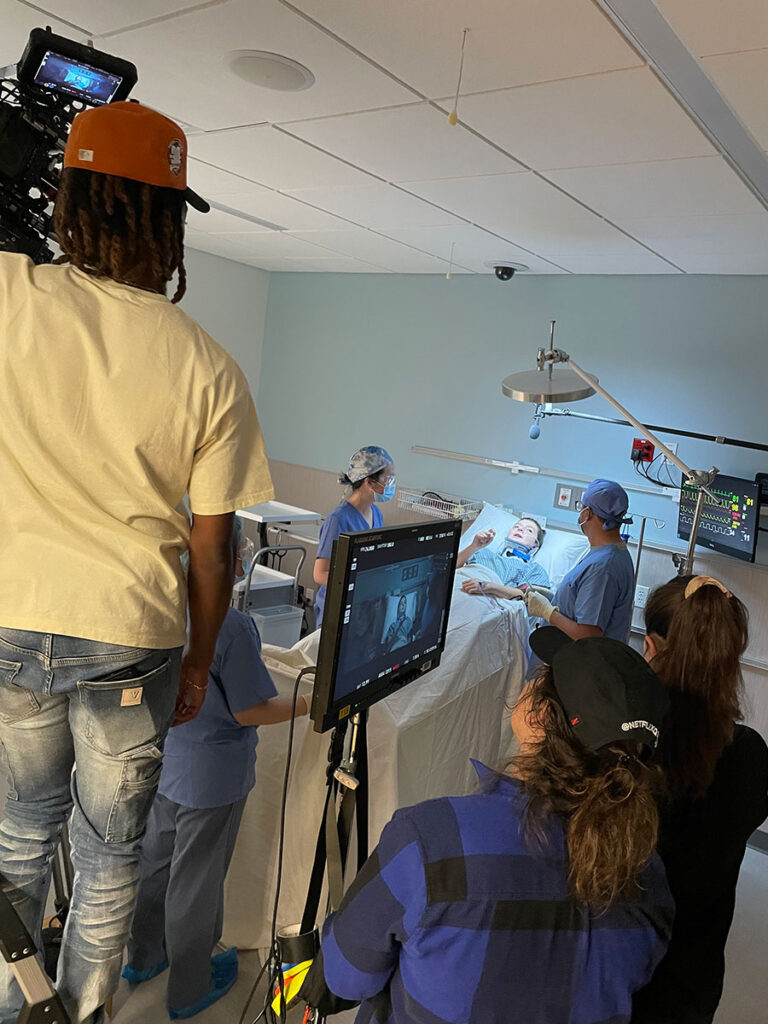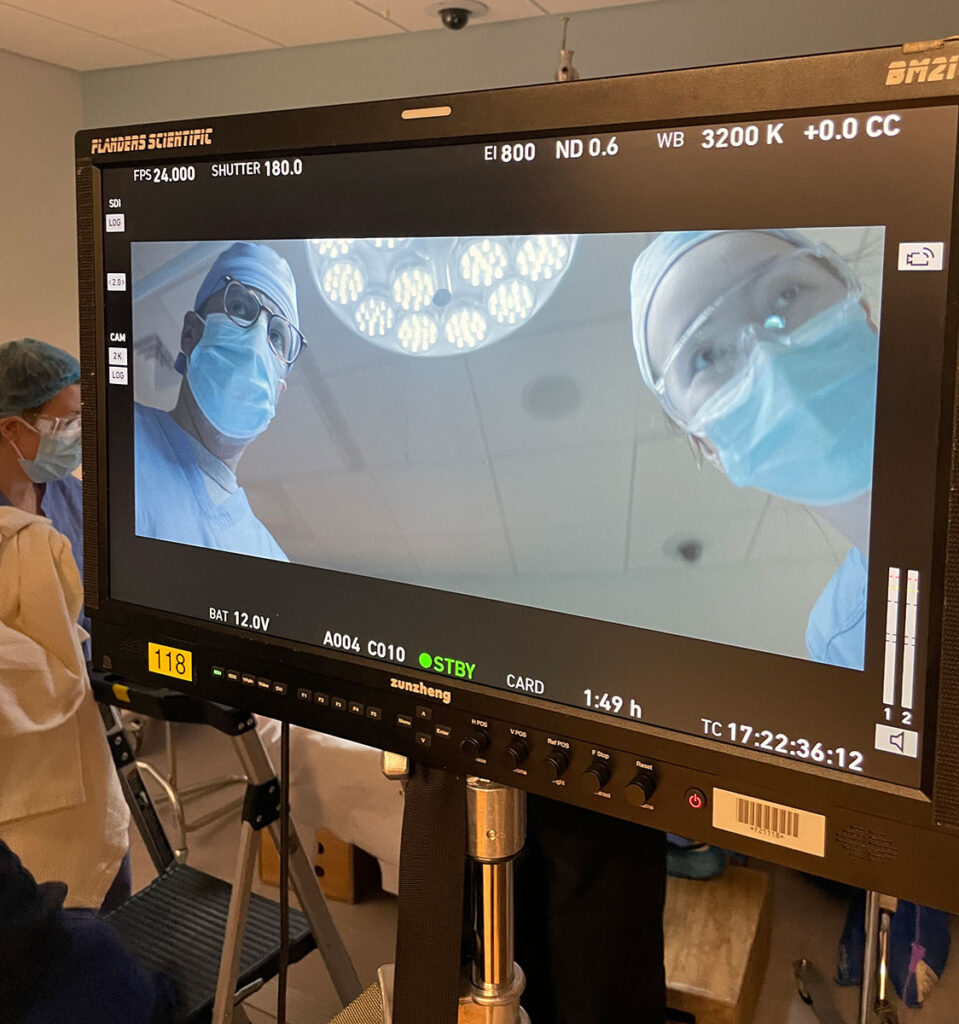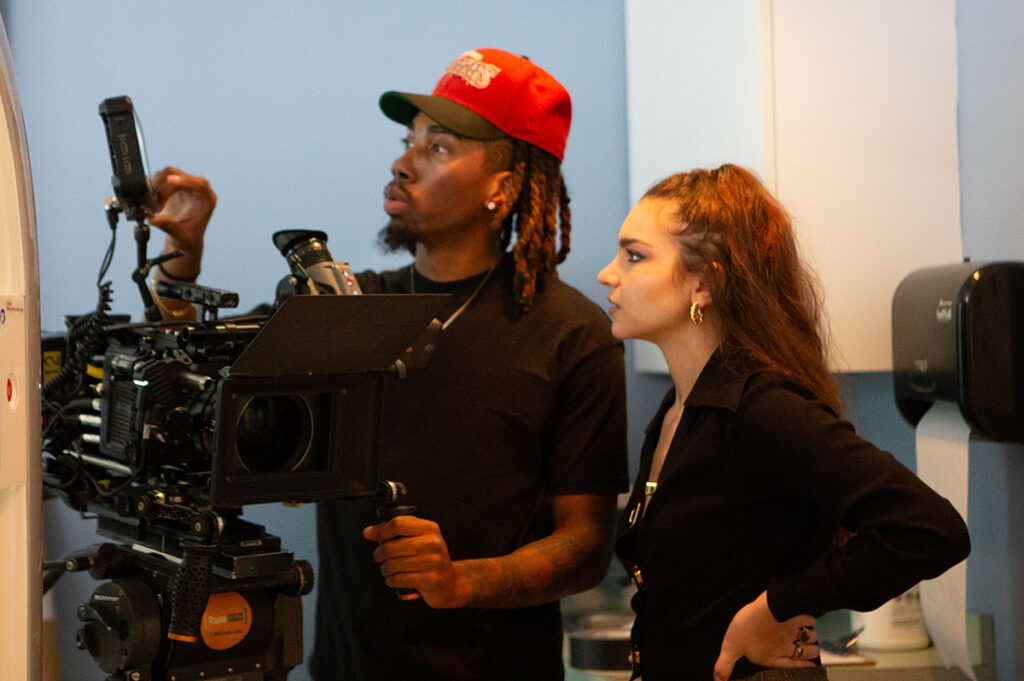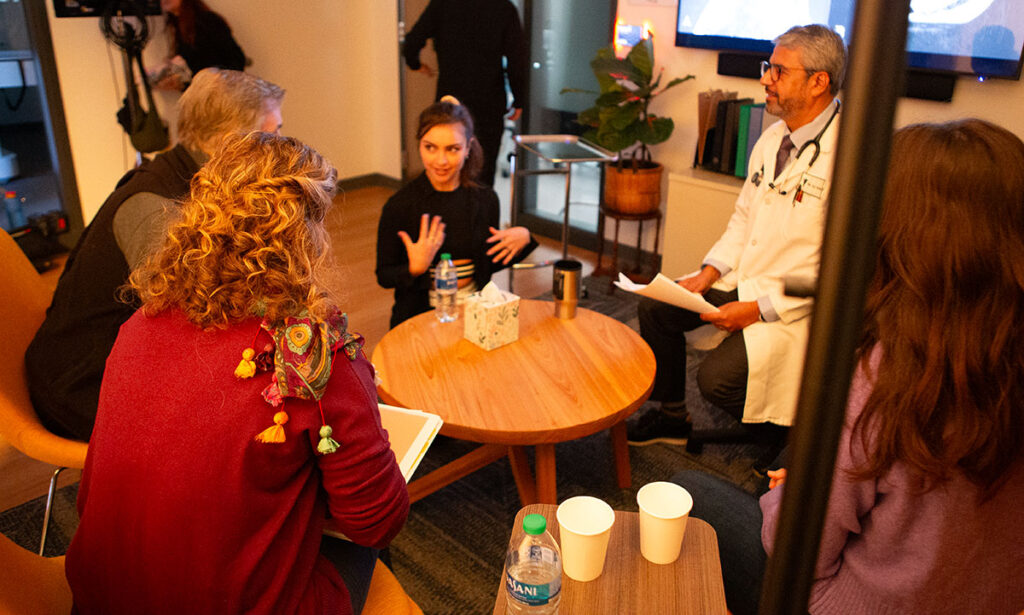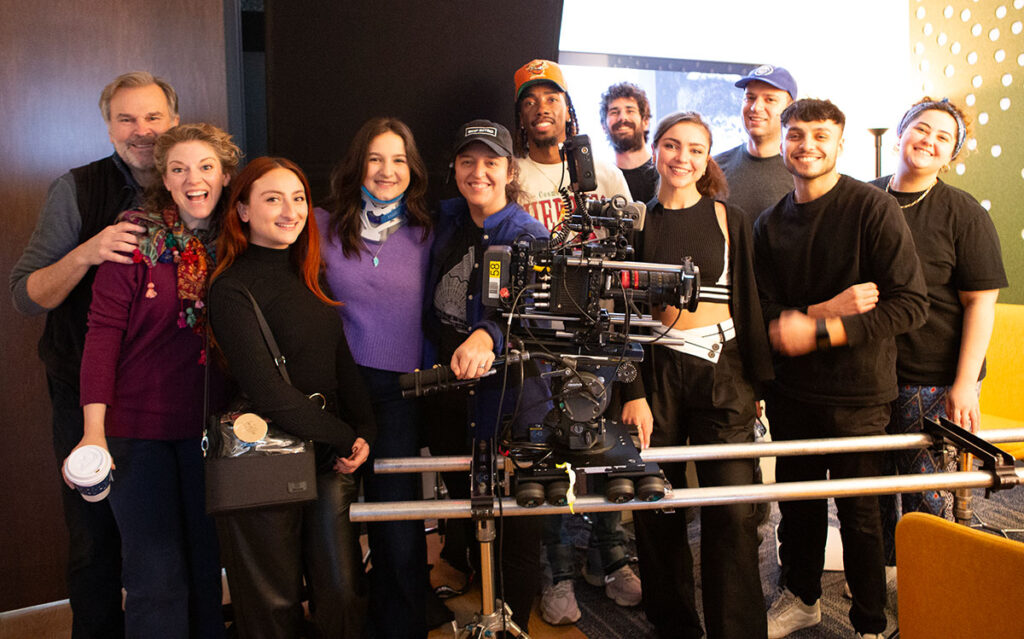Manya Glassman ’19 films semi-autobiographical movie at Providence College
By Ealish Brawley ’14
When aspiring filmmaker Manya Branham Glassman ’19 needed a setting for her semi-autobiographical short movie, “How I Learned to Die,” she turned to Providence College. The new nursing and health sciences facilities in Feinstein Academic Center provided the perfect backdrop for two days of filming in November 2023.
“How I Learned to Die” is Glassman’s thesis for a graduate degree in film at the Tisch School of the Arts at New York University, which she will complete in May. For four semesters, she served as teaching assistant to producer, screenwriter, and professor Spike Lee. She spent every Thursday working by Lee’s side for 12 hours a day, assisting as he met individually with dozens of students to review and discuss their scripts, and as he taught seminar classes and led discussions on great works of film.
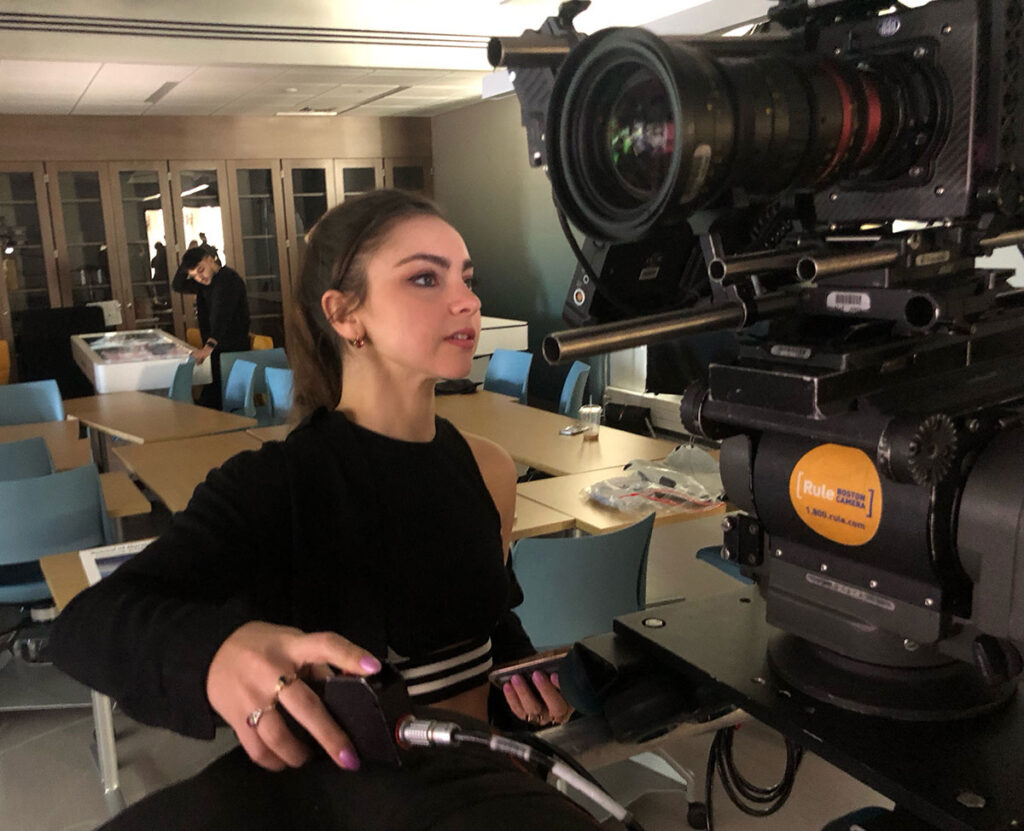
Her thesis is only one example of how Glassman uses her films to explore important philosophical questions about life and death. She has produced 11 short films and written, directed, and edited six of her own.
Glassman names her parents, Gary Glassman, president of Providence Pictures and a documentary filmmaker, and Joan Branham, Ph.D., professor of art and art history and associate dean of the School of Arts and Sciences, as encouraging her study of film, along with Lee and her experience studying the liberal arts at PC.
The script for “How I Learned to Die” was influenced by Glassman’s medical history. During her first year of high school, she experienced pain in her neck. X-rays showed a tumor growing in her third vertebrae. Although the tumor was not cancerous, it was spreading to other bones and compromising the strength of her spine. She wore a neck brace for a year as doctors tried a series of small surgeries to remove the tumor and turn the surrounding bone into scar tissue. When those surgeries proved unsuccessful, her medical team decided that a riskier surgery, a cervical spinal fusion in which the tumor is removed and the compromised bone is replaced with screws, was necessary.
In Glassman’s short film, 15-year-old Iris is faced with a similar surgery, which she is told has a 40% survival rate. She creates a bucket list of things to accomplish before the procedure. The list is full of experiences considered important to young teenagers, such as having a first kiss and getting drunk for the first time. While racing to complete these youthful rites of passage, Iris comes to understand what is truly important in her life: her family and the memories she has made with them.
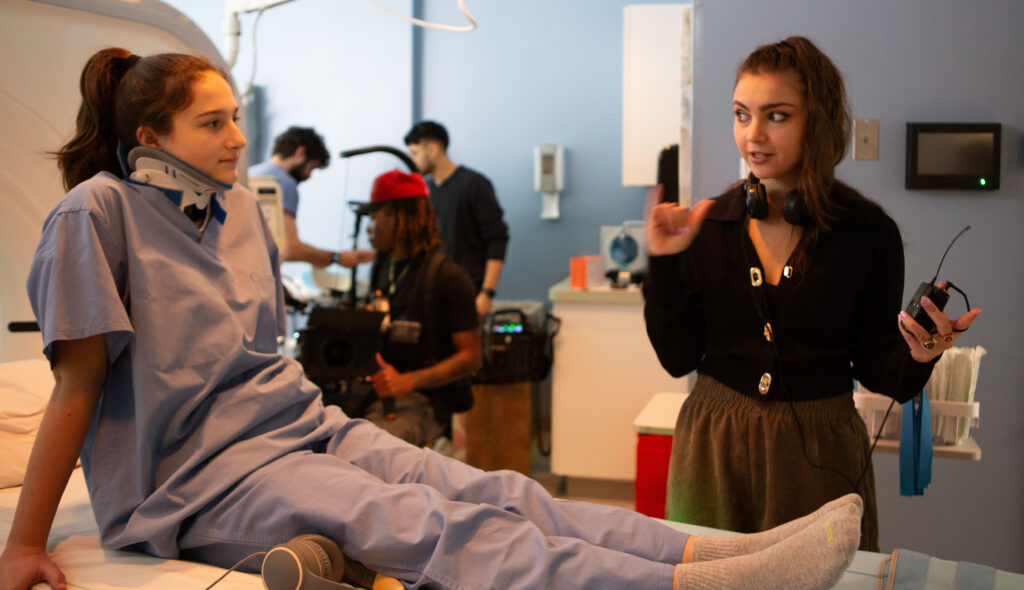
Her protagonist’s revelation, as well as her own studies and career in film, were inspired by the relationship Glassman has with her parents.
“I am really, really lucky. I owe my parents everything,” Glassman said.
Movie nights were a staple of family time. She remembers her mother hitting pause to analyze certain scenes for the contrast between light and dark or the beauty of the lines on screen. Her father would pretend to get annoyed with the interruption, but would himself interject later on to discuss the merits of certain directorial choices.
“His film mindset and her art mindset merged for me in a way that I looked forward to movie nights. It’s how we connected with each other. I associate movies with the love I have for my parents,” said Glassman.
Glassman began filmmaking at a young age. She started by borrowing her father’s camera to make music videos with her friends. One project led to another, and she realized filmmaking was what she wanted to do for the rest of her life.
The liberal arts education at PC, where she majored in humanities and minored in French and film, provided Glassman a wide range of topics to explore in her films. She intentionally chose not to attend a film production school at the undergraduate level, deciding to reserve that track for her graduate studies. She spent her undergraduate years asking important questions and opening her eyes to the breadth of the human experience in classes such as ethics and women’s studies.
“PC offers the widest range of humanities, philosophy, women’s studies, ethics. I can take all of these and use them to make movies. I want to incorporate all of those things in my films,” said Glassman.
Filming “How I Learned to Die,” a project that was so personal to her in content, was a cathartic experience. Script writing was difficult because she dealt with memories of pain and uncertainty. She also had to decide what to keep from her own experience and what to remove or embellish to make a good film. Glassman said the filming, especially the hospital scenes recorded in the PC nursing laboratory, was transformative. The project gave her the opportunity to relive the experience, but in a circumstance where she was in charge, writing the narrative and directing the scenes on her own terms.
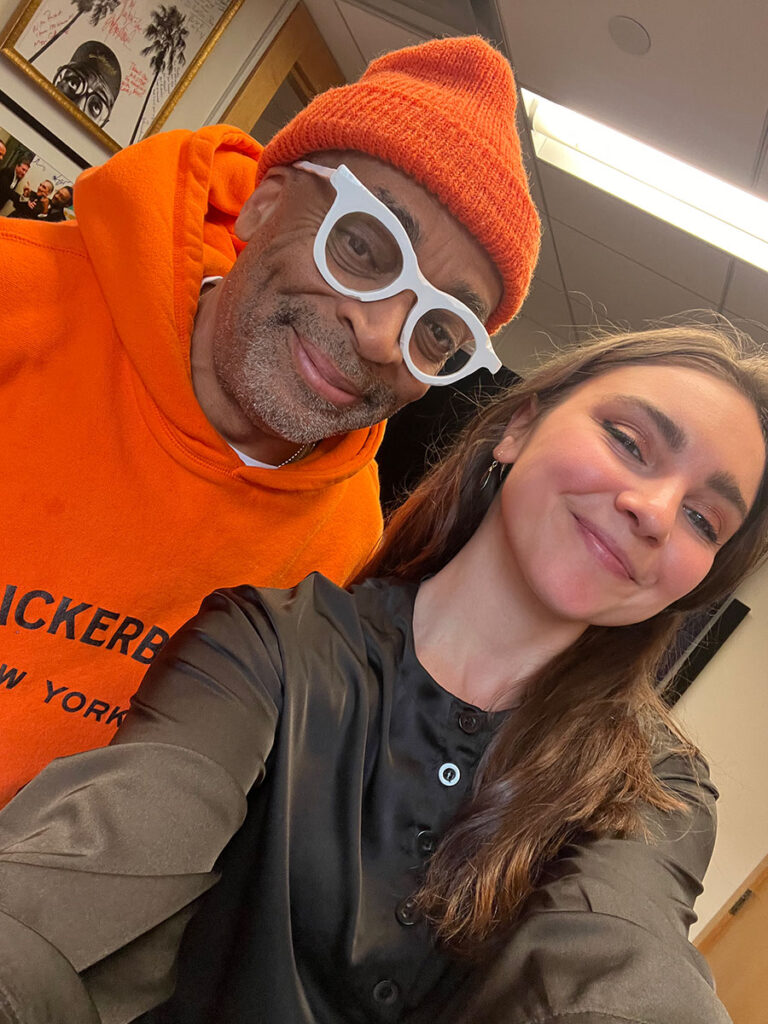
The importance of giving back is one of the most important lessons Glassman says she has learned from Lee. She admires his dedication to forming the next generation of filmmakers at NYU, his alma mater. Although he has a prolific career filled with many notable films and has many projects to keep him busy, Lee chooses to spend every Thursday at NYU with his students. Glassman’s own thesis film was funded by the Spike Lee and Sandra Ifraimova Film Production Grant.
“I think about my education at PC and NYU. Later in my career, I hope that I have the same mindset of going back to my roots and serving the community that nurtured me,” said Glassman.





